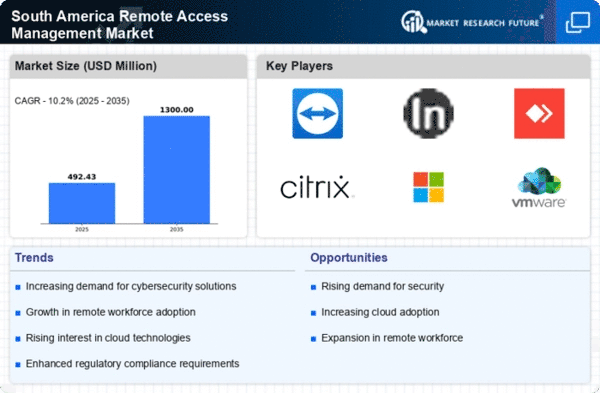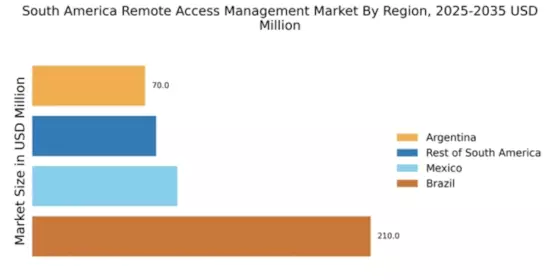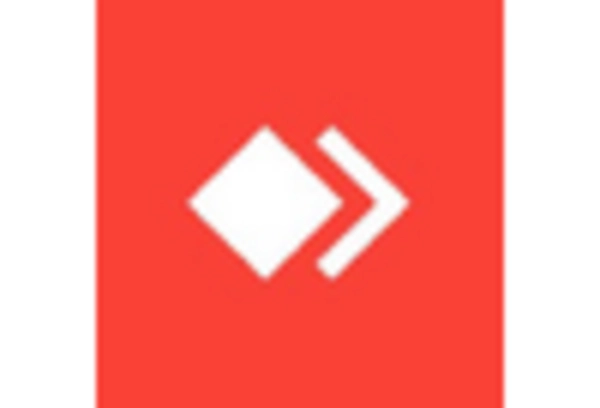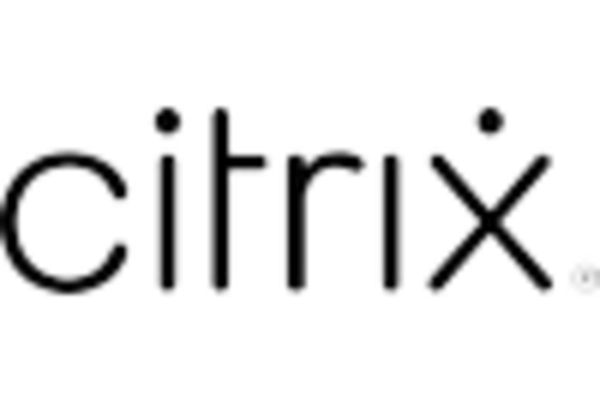Increased Regulatory Requirements
The evolving regulatory landscape in South America is compelling organizations to adopt stringent data protection measures, thereby impacting the remote access-management market. Regulations such as the General Data Protection Law (LGPD) in Brazil mandate that companies implement robust security protocols to safeguard personal data. This has led to a heightened demand for remote access-management solutions that comply with these regulations. Companies are investing in tools that not only facilitate remote access but also ensure compliance with legal requirements. As businesses navigate these regulatory challenges, the remote access-management market is likely to see a surge in demand, with an estimated growth of 12% projected over the next few years.
Shift Towards Digital Transformation
The ongoing shift towards digital transformation across various sectors in South America is a significant driver for the remote access-management market. Organizations are increasingly adopting digital tools and platforms to enhance operational efficiency and customer engagement. This transformation necessitates secure remote access to digital resources, prompting businesses to invest in advanced remote access-management solutions. Data indicates that over 70% of companies in the region are prioritizing digital initiatives, which in turn fuels the demand for effective remote access-management systems. As the digital landscape continues to evolve, the market is expected to experience substantial growth, with forecasts suggesting an increase of approximately 18% in the coming years.
Growing Demand for Remote Work Solutions
The increasing trend of remote work in South America is driving the remote access-management market. Organizations are seeking efficient solutions to enable employees to work from various locations while maintaining productivity. According to recent data, approximately 60% of companies in South America have adopted remote work policies, leading to a surge in demand for remote access-management tools. These tools facilitate secure connections to corporate networks, ensuring that sensitive data remains protected. As businesses continue to embrace flexible work arrangements, the remote access-management market is expected to expand significantly, with projections indicating a growth rate of around 15% annually in the region.
Rising Cyber Threats and Security Concerns
The escalation of cyber threats in South America is a critical driver for the remote access-management market. With an increase in cyberattacks targeting businesses, organizations are prioritizing security measures to protect their data and infrastructure. Reports indicate that cybercrime costs in the region have risen to over $30 billion annually, prompting companies to invest in robust remote access-management solutions. These solutions not only provide secure access to networks but also incorporate advanced security features such as multi-factor authentication and encryption. As the threat landscape evolves, the demand for comprehensive remote access-management tools is likely to grow, reflecting a heightened focus on cybersecurity.
Technological Advancements in Connectivity
Technological advancements in connectivity are significantly influencing the remote access-management market in South America. The proliferation of high-speed internet and mobile technologies has enabled seamless access to corporate resources from virtually anywhere. This shift is particularly relevant as more businesses adopt cloud-based solutions, which require reliable remote access-management systems. Data suggests that the number of internet users in South America has reached over 400 million, creating a vast market for remote access solutions. As organizations increasingly rely on cloud services, the need for effective remote access-management tools that ensure secure and efficient connectivity is expected to rise, potentially driving market growth by 20% in the coming years.

















